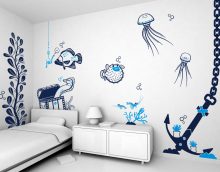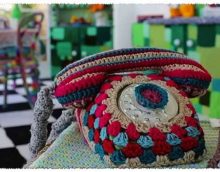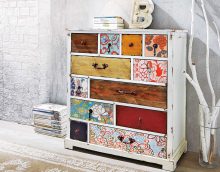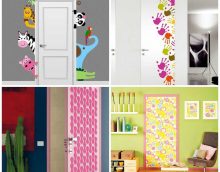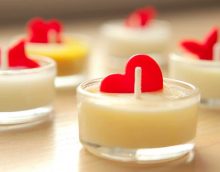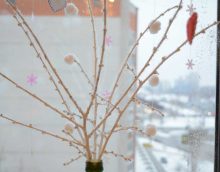What is a lighting design lighting?
The beauty and comfort of the interior depends largely on its proper lighting. Any design project begins with the stage of choosing lighting fixtures and working out their location, since in the process of decorating an apartment it will be difficult to fix these details.
The concept of "light design" is much more complex and multifaceted than it might seem at first glance. It should showcase the advantages of the premises and hide its shortcomings, make it cozy and comfortable, emphasize the individuality of the owner.
Lighting design is usually divided into three components, each of which has a special role in creating a stylish and harmonious interior lighting:
- The overall design - is the background from which it is worth starting from when working out the layout of other light sources.
- Light architecture - is divided into internal, external and interior. Defines the overall style, makes the lighting design more individual and expressive.
- Lighting design is all that you can swap and move. The most plastic lighting element that expresses the individuality of the owner.
Usually a competent project includes all three elements, because only their skillful combination can create an interesting and stylish interior.
Content
What is lighting
There are several types of lighting, each of which has its own functions and rules of execution:
| View | Function | Demand |
| Background | Comprehensive lighting of the space, creating the background | Maximum Covered Area, Minimum Shadows |
| Local | Emphasizes details | Suitable light spectrum |
| Working | Spot lighting in areas where light is especially needed | Optimal for human perception of light |
| Decorative | Aesthetic | Harmlessness |
| Background light | Makes what is happening in the room inaccessible to prying eyes | Must be opaque outside |
The effect of lighting on the emotional state
Not only the appearance of your apartment, but also the mental and emotional state of its inhabitants depends on the choice of fixtures. Scientists have found that lighting that affects us has many properties that can be beneficial or harmful.
- Yellow light is a classic option that people are unlikely to ever give up. This color creates an atmosphere of comfort and is good for the eyes.
- Due to white lighting, there is an increase in human performance. But with too high a sharpness of such light, rapid fatigue sets in.
- Red charges with energy and vigor, increases pressure.
- Orange color provokes an improvement in appetite and an increase in heart rate.
- The blue glow has a relaxing effect, while the pressure decreases.
- Green lighting is used in bedrooms and children's rooms. It soothes and relaxes, and is also very comfortable for the eyes.
- Purple and blue light are not used for living rooms and rooms with a long stay. These colors are oppressive and irritating.
How to regulate natural light
When passing through glass and reflected from mirrors, natural light becomes too harsh and harsh. This light effect can be smoothed out using translucent and openwork barriers - tulle and organza. Diffusing light, they make natural lighting smooth and comfortable.
Another way to control the luminous flux pouring from the windows is through vertical blinds. They make it less rigid, and at a certain turn they give it the necessary direction. With their help, the level of illumination of the room is regulated with just a few hand movements.
The principles of artificial lighting
To the illumination of any space, a lot of sanitary and hygienic requirements are presented, determined by various GOSTs and norms. You can study them for a long time and hard, but it will be more convenient to get acquainted only with the most important of them.
| Indicators | Bedrooms and living rooms | Kitchens and dining rooms | Gyms | Children's rooms | Workrooms | Hallways | Toilets | Bathrooms | Pools |
| Illumination, lx | 150 | 150 | 150 | 200 | 300 | 50 | 50 | 100 | 100 |
| KEO | 0,5 | 0,5 | 0,5 | 0,7 | 1,0 | – | – | – | 0,5 |
| UGR | 0 | 0 | 60 | 0 | 0 | 0 | – | – | 60 |
All values in this table are only a necessary minimum; no upper limits are established by the upper limits.
The concepts of KEO and UGR are not familiar to every reader. Let's try to figure out what it is and how they differ from each other.
KEO
The coefficient of natural light is the ratio of natural light to total. The parameter determines the proportion of natural light that enters the space of the room. We give the simplest example.
Suppose we measured the light in the middle of the living room, and it amounted to 300 lux. We go out to the open balcony adjacent to this room, and measure the level of illumination there. Let's say it was 500 lux. Then KEO will be calculated as 300/500 = 0.6. Comparing this indicator with the tabular value, we conclude that the light corresponds to the norm.
UGR
The discomfort coefficient is determined by international standards and serves as an indicator of light stiffness. It is measured in the range from 1 to 100 and is determined by the polarization, coherence and spectrum of the light flux.
In simple words, this value shows how soft and favorable the light in the room is for the human eye.
Fundamental rules
Having dealt with the norms, it’s worth talking about the basic rules that are responsible not for the absence of harm to human health, but for the harmonious aesthetic design of the interior.
- Lighting design must necessarily be consistent with the color of the interior.
- A stream of light visually stretches the room, extending it towards its direction.
- Light rooms illuminate evenly, made in dark colors - each zone separately.
- In the working area, the ideal light is white.
- It is better to highlight bright objects with colored light, and for bright details choose bright local lighting.
- Saturated shadows and lack of light in certain areas are best avoided.
Pros and cons of chandeliers
The most common type of fixtures used in the interior of any room and style is suspended and ceiling chandeliers. They use different types of lamps, they differ in style and design, but the most important parameter when choosing is the material from which the chandelier is made.
| Material | pros | Minuses |
| Metal | Strength, Durability Easy to clean |
Due to the large mass of the chandelier requires a more durable ceiling mount High price |
| Glass | Variety of shapes and colors No deformation Easy to clean |
Fragility |
| Tree | Environmental friendliness Harmonious combination with wooden furniture |
Exacting care Moisture resistant Exposure to light Fragility |
| Crystal | Luxurious presentable look Making a play of light |
High price Fragility |
| Plastic | Minimum cost Ease |
Tends to fade in the light |
| Textile | Originality Reasonable price |
Fragility Marc Fire resistance |
Chandeliers definitely look quite stylish and beat the general stylistic idea of the interior, creating an atmosphere of warmth and coziness around them, but they also have disadvantages:
- Difficult installation.
- Difficulty cleaning.In order to clean the chandelier well, you will first have to unscrew the plafonds, and then screw them into place.
- High cost compared to conventional fixtures.
- Not suitable for rooms with low ceilings.
- Markiness. Decorative chandeliers located under the ceiling collect a lot of dust due to the abundance of hanging elements.
Pros and cons of fixtures
The latest generation of luminaires, which is very popular - LED or led-luminaires. Their success in the market is due to the many advantages of such lighting:
- Durability. Service life more than 50 thousand hours.
- Energy saving.
- Profitability.
- High efficiency.
- Ability to change the color, brightness and temperature of lighting.
- Compact and flexible modules that allow you to implement many design ideas.
- Strength.
- Environmental friendliness.
- Security. Such lamps have an extremely low risk of fire.
Regarding the minuses of LED lighting, the following should be said:
- The high cost can scare you at first, but it is fully offset by the long life and cost-effectiveness of such devices.
- An LED driver is required to provide power to the device.
- LEDs tend to lose brightness, and their light becomes dimmer.
- Replacing a blown LED can be problematic.
Street lighting
Outdoor lighting is carried out for a decorative, security or functional purpose.
It is customary to pay special attention to functional lighting in the project, since it is she who is responsible for the safe movement in the yard. The main objects are garden paths, steps and a porch, and the most popular solution is small lamps with short legs. They will perfectly fit into any landscape design and will not take up much space, and in the dark they will perfectly cope with their task.
Advice for the most economical owners - use solar-powered lamps, their choice is also huge.
Decorative lighting is designed to focus on the most attractive details of your garden with the help of light. It can be installed at a fountain, reservoir, recreation area or garden sculpture.
A properly organized light interior design is able to work real miracles, transforming space, changing the direction of the light stream and beneficially affecting the human psyche. The main thing in the pursuit of a stylish and modern interior design is to follow the rules of lighting and not to forget about your own comfort and health.

